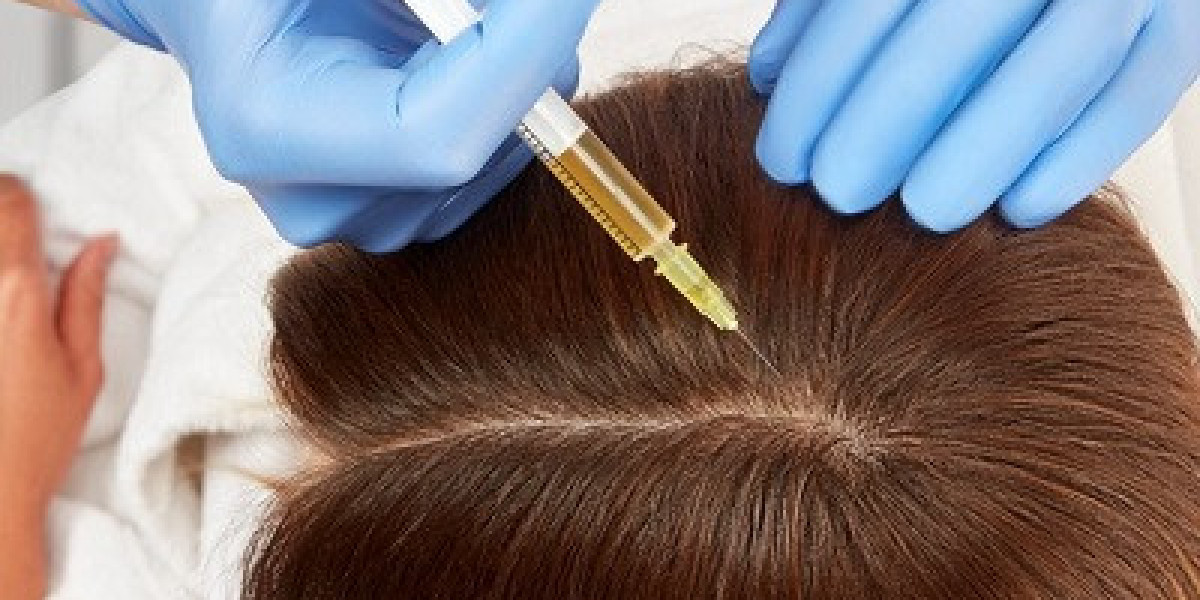PRP (Platelet-Rich Plasma) therapy has become a popular, non-surgical solution for hair thinning and hair loss. This innovative treatment uses your own blood platelets to stimulate hair growth, making it a favored option for those looking for a natural way to enhance hair density and thickness. After undergoing PRP, many individuals have questions regarding hair care, particularly whether it is safe to straighten their hair.
In this blog, we will discuss when and how it is safe to straighten your hair after PRP, as well as essential hair care tips for optimizing your results.
Understanding PRP Treatment for Hair:
PRP therapy in Islamabad involves drawing a small amount of your blood, separating the platelets through a centrifuge, and injecting the concentrated platelet-rich plasma into your scalp. The growth factors in the plasma encourage your hair follicles to become more active, leading to thicker, stronger hair growth. The process is minimally invasive and, with repeated sessions, can show substantial improvements in hair density.
Immediately following PRP, your scalp may be slightly sensitive due to the injections. While the treatment is not painful, some patients experience mild discomfort, redness, or swelling in the treated areas. Because of this, extra care is needed in the days and weeks following treatment, especially regarding hair care routines.
Can You Straighten Your Hair After PRP?
Straightening your hair is possible after PRP treatment, but timing and technique are crucial. Below are key considerations to keep in mind before using heat styling tools.
1. Immediate Post-PRP Period:
Directly after your PRP session, your scalp may feel tender or sensitive. During this period, it is highly recommended to avoid any heat styling tools, including flat irons, curling irons, or even hot blow dryers. The heat from these devices can exacerbate scalp sensitivity and delay the healing process. In the first week post-treatment, your hair follicles are in a delicate state as they begin responding to the PRP injections. Introducing heat could cause irritation or, in worst cases, lead to follicular damage.
Recommendation: Avoid heat styling for at least one to two weeks after your PRP session. This allows your scalp to heal and the treatment to take effect without unnecessary stress.
2. Waiting Period for Heat Styling:
Once the initial healing phase is complete, you can gradually resume heat styling your hair. The ideal time to wait before using a flat iron or other heat tools is two weeks post-PRP. This waiting period ensures your scalp is no longer inflamed, and your follicles are less sensitive to external factors like heat. However, before fully resuming your styling routine, it’s a good idea to consult with your PRP specialist for personalized advice based on your specific scalp condition and treatment plan.
3. Protecting Your Hair While Straightening:
Even after the recommended waiting period, it’s important to use caution when heat styling. Excessive heat can weaken hair, making it prone to breakage, especially if the follicles are still in a regenerative phase from PRP therapy. Follow these tips to minimize damage when straightening your hair:
Use a Heat Protectant: Always apply a heat protectant spray or serum before straightening your hair. This acts as a barrier and reduces the direct impact of heat on your strands, protecting both your hair and scalp.
Lower the Heat Setting: Choose a medium to low heat setting on your straightening iron. High temperatures can fry your hair and cause it to become dry and brittle, which is the last thing you want after undergoing a hair restoration treatment.
Limit Frequency: Avoid straightening your hair daily. Instead, limit heat styling to once or twice a week to give your hair and scalp a break from the stress. Overuse of heat styling tools can counteract the positive effects of PRP by damaging newly stimulated hair.
4. Prioritizing Hair Health Post-PRP:
The success of PRP therapy depends not only on the treatment itself but also on how you care for your hair afterward. Hair straightening is generally safe after the initial recovery phase, but excessive use of heat styling tools or improper hair care practices can slow down the progress PRP can provide. To maintain healthy hair post-PRP, follow these general guidelines:
Avoid Harsh Chemicals: Refrain from using chemical treatments such as hair dye, perms, or relaxers for at least four weeks post-PRP. Chemical processes can irritate the scalp and interfere with the natural hair regeneration process.
Gentle Shampooing: Use sulfate-free, mild shampoos and conditioners to avoid stripping your hair of essential oils. Strong, clarifying shampoos can leave your hair dry and weak.
Regular Follow-Up Sessions: PRP is most effective when done in multiple sessions. Make sure to stick to your recommended schedule of follow-up treatments, usually spaced about a month apart, to achieve the best results.
When Should You Avoid Straightening After PRP?
If your scalp is still sensitive or if you experience any unusual discomfort post-PRP, it’s best to avoid straightening your hair until the tenderness has fully subsided. Additionally, if your hair has shown signs of damage from previous heat styling, consider waiting longer or opting for more hair-friendly, non-heat styling methods like air drying or using heatless straightening techniques.
Conclusion:
While it’s completely possible to straighten your hair after PRP treatment, patience is key to achieving the best results. Allowing your scalp to recover for about two weeks post-treatment is crucial before reintroducing heat styling. Once you resume straightening, always use a heat protectant and avoid high heat settings to keep your hair healthy and strong. By taking a cautious approach, you’ll help protect your hair follicles, ensuring that the benefits of PRP therapy continue to improve your hair over time.
For more information visit Dynamic Clinic PK







